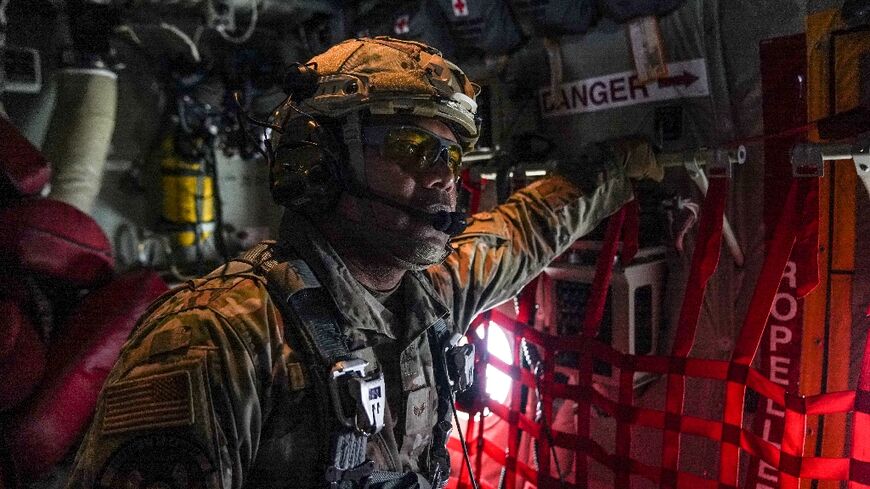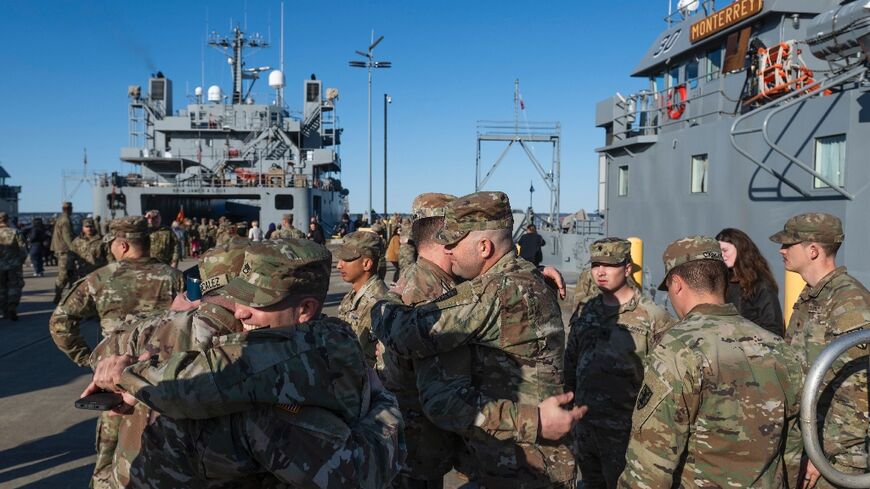Spain, Egypt FMs call for Palestinian state, more aid to Gaza
Spanish Foreign Minister Jose Manual Albares called on the international community Thursday to rally for a ceasefire in Gaza "as a first step" to peace between "a Palestinian state side by side" with Israel.
In a joint conference with Egyptian foreign minister Sameh Shoukry in Cairo, where Albares also met with Egyptian President Abdel Fattah al-Sisi, Spain's top diplomat said there must be "a framework in place to allow Palestine to live in peace."
There had to be "a ceasefire and an end to the humanitarian catastrophe that an innocent civilian population is suffering", Albares said.
He also called on the international community to "set its sights" on the "innocent Palestinians who have lost their lives" and those "threatened by famine".
The United Nations has repeatedly warned of famine in the Gaza Strip, in particular in the cut-off north of the territory.
According to Egypt's presidential spokesman, Sisi and Albares discussed "the necessity of supporting" the UN agency for Palestinian refugees, UNRWA, which coordinates aid in Gaza.
The agency faces a funding crisis after multiple donor nations, including the United States, suspended funding following Israeli allegations that about a dozen of UNRWA's 13,000 Gaza employees were involved in the October 7 Hamas attack on Israel.
Madrid this month announced an additional 20 million euros in funding for UNRWA.
The surprise Hamas attack resulted in about 1,160 deaths, most of them civilians, according to an AFP tally based on official Israeli figures.
Spain, along with Ireland and Belgium, has been one of the European countries most critical of Israel's offensive and repeatedly pushed for the recognition of a Palestinian state.
Israel's retaliatory campaign, aimed at destroying Hamas, has killed at least 31,341 people, mostly women and children, according to the Hamas-run territory's health ministry.
- 'Deliberate delays' -
Albares and Shoukry reiterated the need for intensified aid operations in Gaza, with the latter warning recent airdrops and a planned maritime aid corridor were not sufficient.
Airdrops, which Egypt has taken part in, "were limited in volume" and "posed danger to the civilians they are meant to help," said Shoukry.
Last week, a malfunctioning parachute caused airdropped aid to kill five people in Gaza.
Meanwhile, the Spanish charity vessel Open Arms is approaching from Cyprus and Washington has ordered US troops to build a temporary pier off Gaza.
But US officials expect the pier to take up to two months to construct.
"What do we do for two months? Are children supposed to continue to die while they wait?" said Shoukry.
"We must tackle this realistically," he said, adding that "what is available to us now are land crossings".
"There are six crossings that Israel controls and that should be opened to humanitarian assistance," Shoukry said.
He said that Israeli inspections of all aid shipments at the crossing were behind delays at the Gaza-Egypt border and not Egyptian restrictions.
Shoukry said trucks are subjected to "deliberate delays in authorisation, intended to prolong the siege of the Palestinian people in Gaza."





